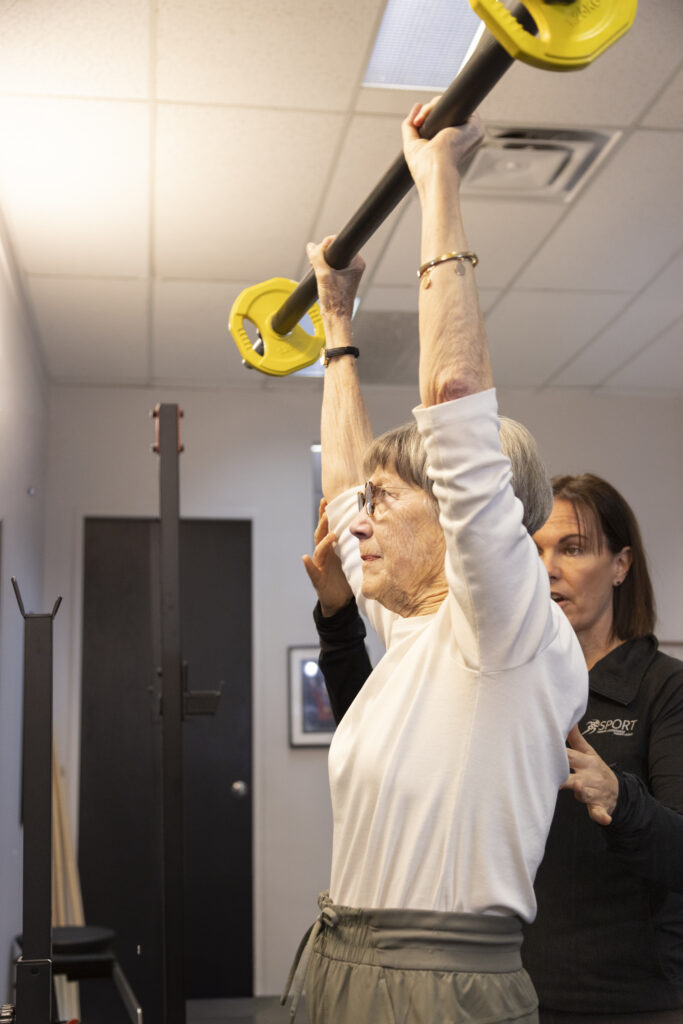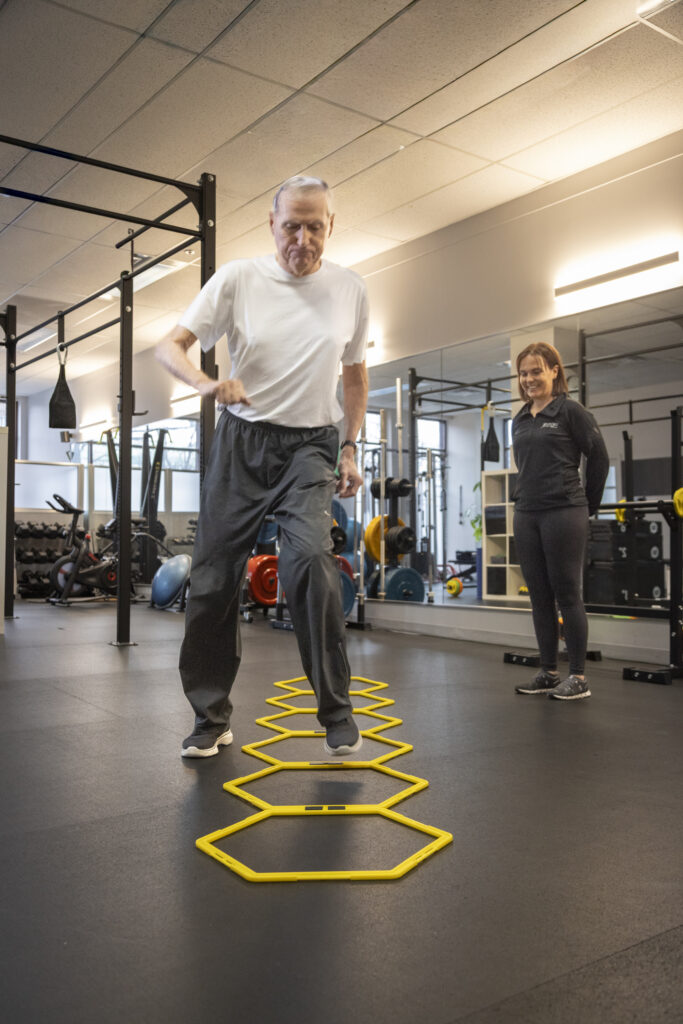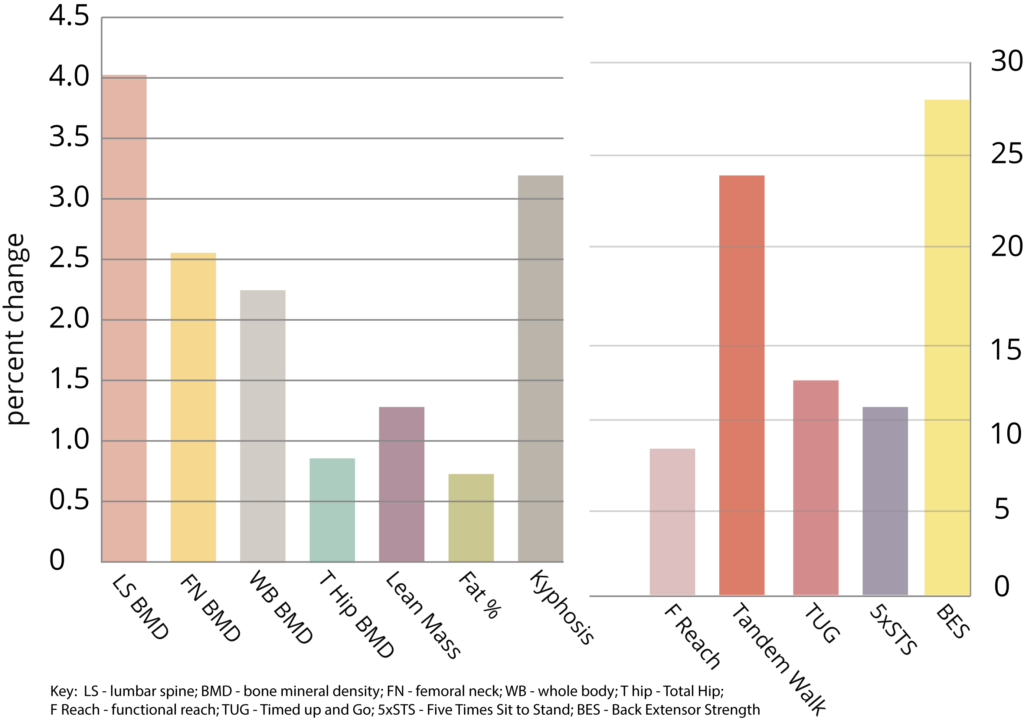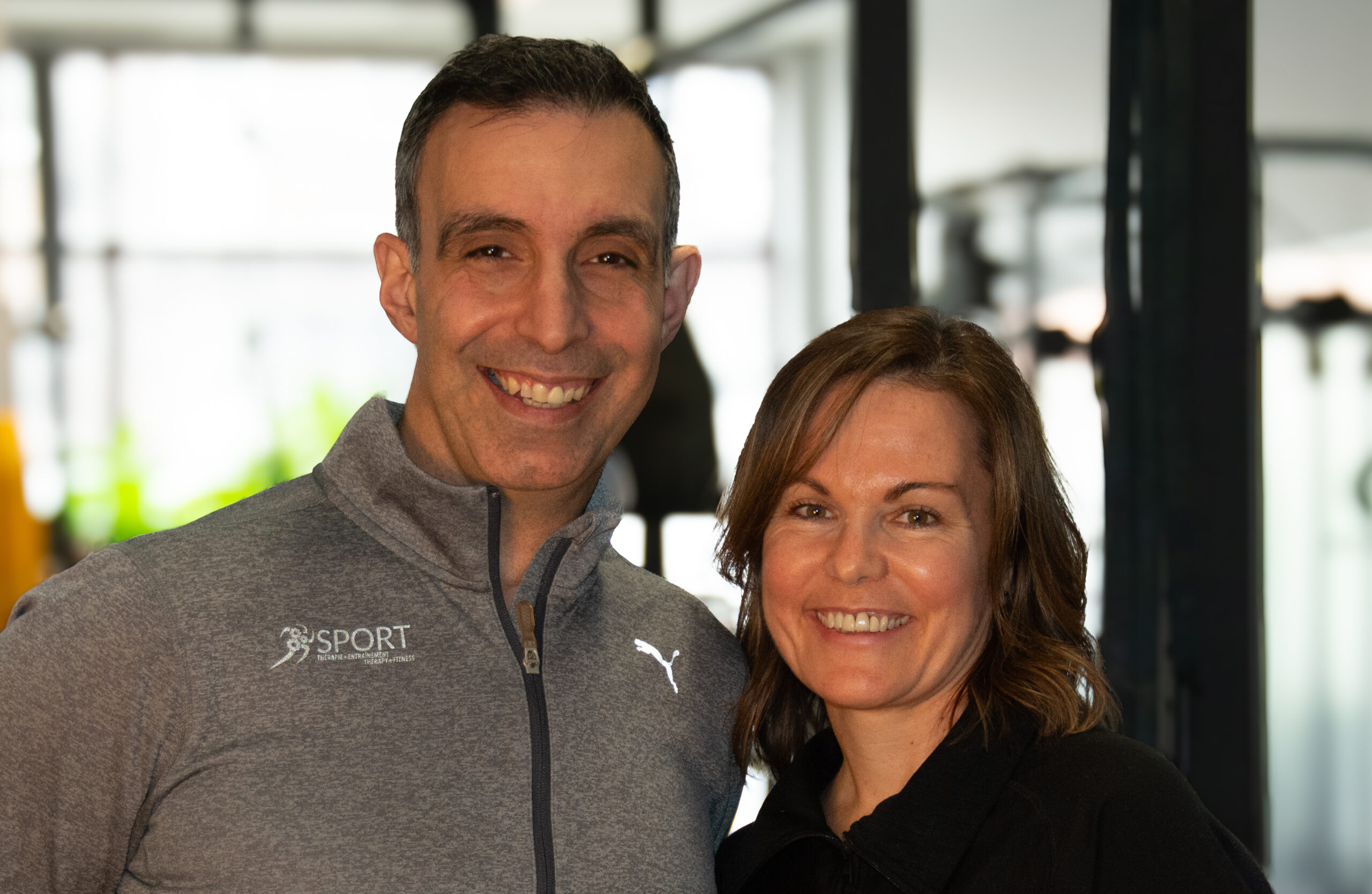


A diagnosis of low bone density or osteoporosis doesn’t mean the end of your active life. At any age, your bones and muscles can adapt, and with the right support, you can build resilience, confidence, and strength.
The Onero™ Program is a clinically-backed exercise program specifically designed to help reduce fracture risk and improve bone health through targeted strength and impact training. Whether you’re newly diagnosed or have been managing osteoporosis for years, this program meets you where you are—and moves with you toward better health.


Onero™ is a high intensity resistance and impact exercise program to strengthen bone and muscle. The program is especially designed for people with low bone mass.
Under the supervision and care of an ONERO™ licensed practitioner, clients learn strength & impact exercises of adequate intensity to counteract the natural progression of bone mass loss as one ages.
Onero™ is an award winning evidence-based exercise program developed by Dr. Belinda Beck in 2015 based on the latest scientific findings, including the groundbreaking LIFTMOR study.
It is the only strength training program that research has demonstrated to improve bone mineral density in adults over the age of 50 with a diagnosis of Osteopenia or Osteoporosis.

Onero™ is an award winning evidence-based exercise program developed by Dr. Belinda Beck in 2015 based on the latest scientific findings, including the groundbreaking LIFTMOR study. It is the only strength training program that research has demonstrated to improve bone mineral density in adults over the age of 50 with a diagnosis of Osteopenia or Osteoporosis.
We are with you every step of the way!
The safety of the Onero™ program depends on clinical assessment to recognise co-existing conditions so that the program can be implemented without risk of injury or exacerbation of existing conditions.
A hallmark of the Onero™ program is a requirement for close supervision by allied health professionals. Only coaches with the appropriate clinical training and expertise are permitted to deliver Onero™ to people living with osteoporosis.
Your care team at SPORT Specialists have are fully trained and licensed practitioners of the ONERO™ program. You can count on us to deliver the level care we have provided over the past two decades.

Learn to trust your body again.
Get a clear plan you can follow safely.
From an accredited Onero™ practitioner.
Join a community to support you along the way.
Low intensity exercise is not considered to be an effective strategy to build bone. Onero™ is based on the LIFTMOR study which has shown that certain kinds of high intensity loading can be both safe and effective even for people with low bone mass if supervised under the right conditions.
Injuries, which can be a concern in the frail older population, are rare from Onero™ training when properly supervised.
This does not mean other types of exercise are not beneficial for muscle and bone health. Many forms of exercise will provide subtle benefits for your bones. The difference is that the higher intensity Onero™ exercises appear to be more effective, based on findings from the LIFTMOR study, when compared to other forms or intensities of exercise.
The safety of Onero™ depends on an initial assessment of your current health status by an accredited Onero™ practitioner. This initial assessment is mandatory. The assessment of your current health status will facilitate the adaptation of Onero™ training by your accredited Onero™ practitioner in its initial stages so you will be able to participate and minimise any risk of injury or exacerbation of existing conditions.
After the initial assessment, you can commence Onero™ training with your accredited Onero™ practitioner who will provide close supervision as you continue to train with them.
After your personalized Onero™ program, once you have mastered your program and you’ve shown progress and proficiency in your exercises, your accredited Onero™ practitioner can perform a review assessment to determine any changes in your balance, posture and other functional outcomes related to your risk of fracture.
